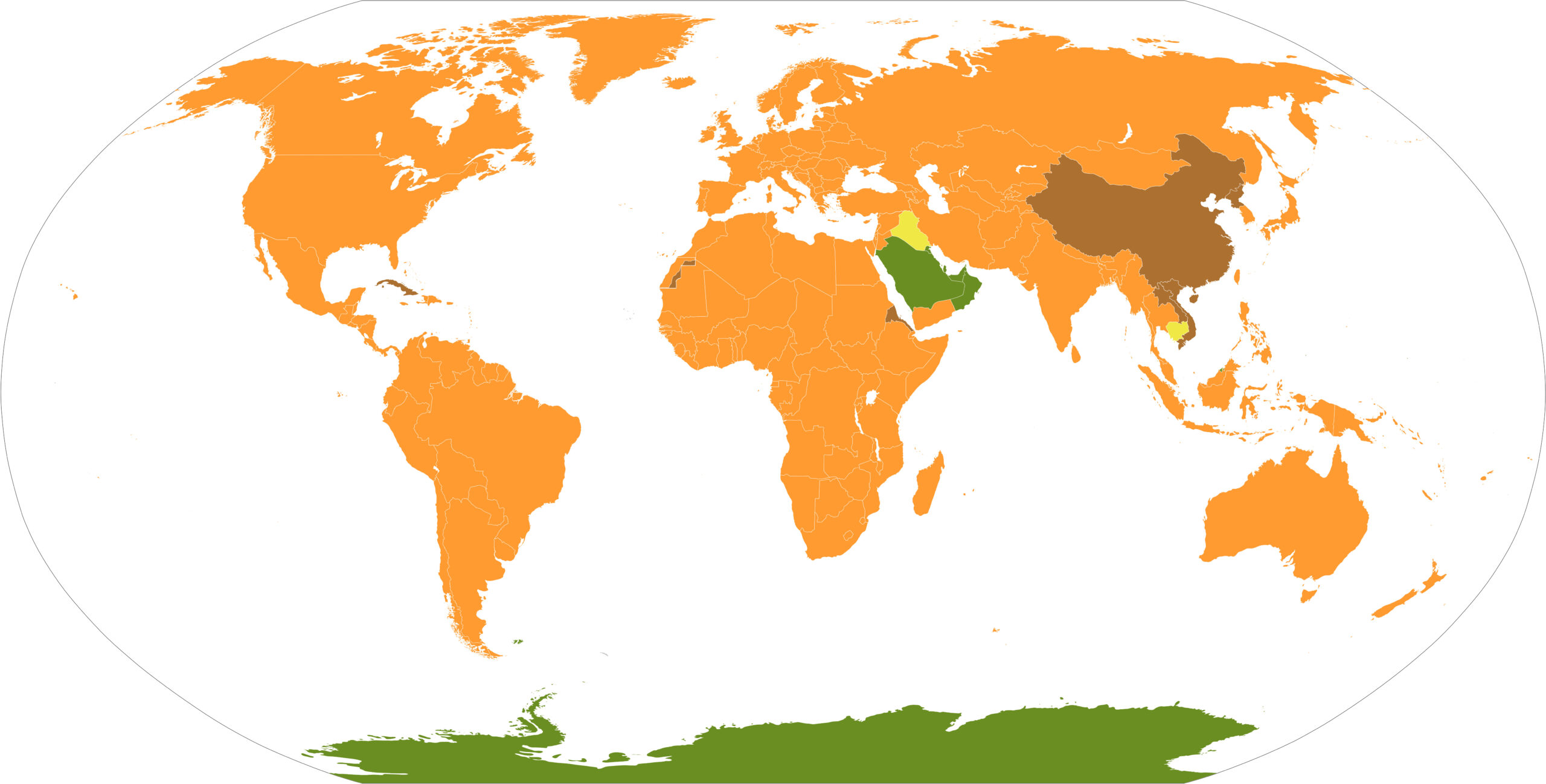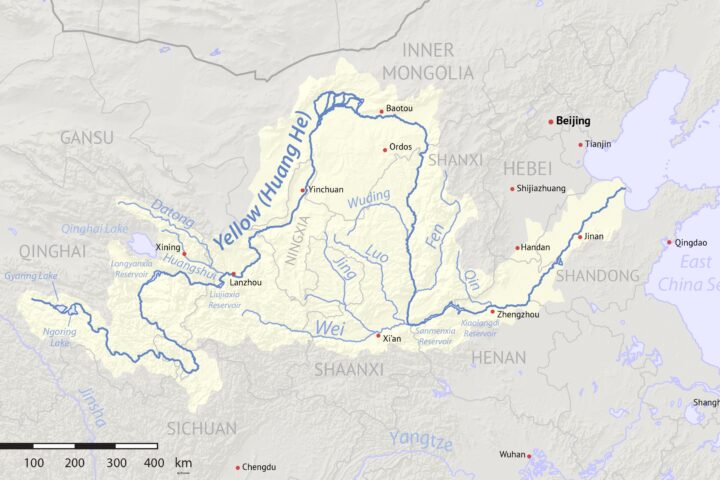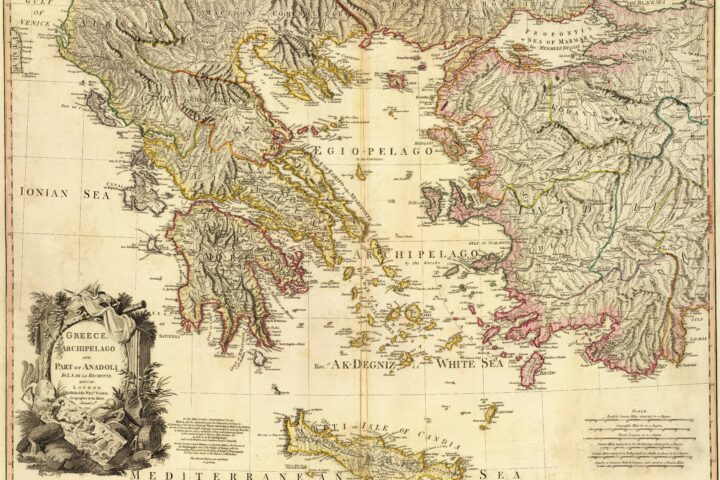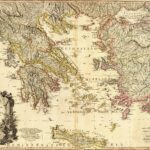Source: commons.wikimedia.org/wiki/File:Countries_and_territories_by_political_party.svg
There are very distinct kinds of political party systems in the democracies of the world. Each has its own ideology.
Political party systems play a pivotal role in the formation of the global and local political landscape of a country. It determines the political power distribution in a country, their functioning, and the elections being held there.
The number of political parties aren’t fixed upon by any international body and can vary from country to country. Many countries might have just one party while many others have multiple parties competing for power. Their overall structure influences the political environment a lot and also has impact on policy-making and governance.
Single-Party System
A single-party system or a One-party state is a country where only one party has the authority and power to control the government. This single party can choose to do so by using law and implementing it into practice.
Currently, countries which are examples of One-party state include North Korea, Cuba, China, and Eritrea. Until the 20th century, most of these countries were run on the basis of communist ideology. Real power in such communist states’ rests in the hands of the party leaders which is mostly the first secretary, instead of the head of the state.
But ever since the World Wars, the trend has died down and now, such countries are found more in less-developed countries. In cases like these, the rulers adopt this method to unify the country and lessen any divisions on the basis of ethnicity and culture. Even if they face pressure to have more freedom elections, most of such attempts fail to give the power to another party and the ruling party takes the cake again.
Two-Party System
A two-party system in which the power is passes along between two main political parties. The votes go mainly to either of the two and other parties aren’t able to overtake them. The best example of this type of political system is the United States, where the Republicans and Democrats battle it out.
This system is supposed to be much better than One-party states and very beneficial in general because of their ability to promote government stability. The presence of two parties limits the amount of political strife in the country. The government in power is stronger too, because now only two parties battle and one winner come into power. In contrast to multi-party systems where coalition governments take form and are not stable at all, this seems like a much better opinion.
Multi-Party System
In multi-party systems, there are more than just two political parties in the country and power doesn’t go to any one or two preferred party- it keeps on shuffling. Other than a few countries, the rest of the world uses this system.
There are many benefits to this system:
- There is increased representation for every community in the country whose concerns might have gone unseen until then. The choices for the people wouldn’t be so limited then and they would be able to find the right candidate to represent their struggles.
- The presence of multiple parties improves the system of checks and balances. Whenever the government does something wrong or unethical, the other party representatives are able to hold them accountable. This also works in cases where groups of parties and the government conspire to do something wrong.
- More political diversity is ensured and an increases amount of discussion is generated in response to any issue.
- Policy-making is rigid and dependent on the decision on two polar views but is able to take into account a range of opinions and ideologies for consideration.
But unfortunately, there are some cons as well. The most prominent con is that of political fragmentation which happens when the presence of several small parties makes it difficult to form stable governments. Coalition governments can be made but these aren’t stable either; if any one party pulls out of the deal, the government would collapse and joust the country into chaos.
Non-Party Systems
In some countries, like Saudi Arabia and the Vatican City, a democratic government and a party system doesn’t exist. The country is managed by either a monarchy or a dictatorship. In some cases, parties may exist but they still get a shorter role to play in the country’s politics. Decision-making and implementation is concentrated in the hands of one single leader or a family, and political pluralism is kept at bay.
For example, the country of Saudi Arabia is a complete monarchy and the authority to rule rests in the hands of the king. On the other hand, Vatican City functions as a theocratic elective monarchy and parties are just as insignificant to operate here.
Resources
Single-Party System
- One-party state | Definition, System, & Examples | Britannica. (2024). In Encyclopædia Britannica. https://www.britannica.com/topic/one-party-state
Two-Party System
- 10.3: The Two-Party System. (2021, January 14). Social Sci LibreTexts. https://socialsci.libretexts.org/Courses/Lumen_Learning/Basics_of_American_Politics_(Lumen)/10%3A_Political_Parties/10.03%3A_The_Two-Party_System
- Two-party system | Features, Advantages, & Problems | Britannica. (2024). In Encyclopædia Britannica. https://www.britannica.com/topic/two-party-system
Multi-Party System
- Analyzing the Pros and Cons of Multi Party System – Inside Political Science. (2024, May 17). Inside Political Science. https://insidepoliticalscience.com/pros-and-cons-of-multi-party-system/
- Political party – Multi-Party, Two-Party, Pluralism | Britannica. (2024). In Encyclopædia Britannica. https://www.britannica.com/topic/political-party/Party-systems
Non-Party Systems Ellison, K. (2021, June 8). Can we have democracy without political parties? Bbc.com; BBC. https://www.bbc.com/future/article/20210607-can-we-have-democracy-without-political-parties

















